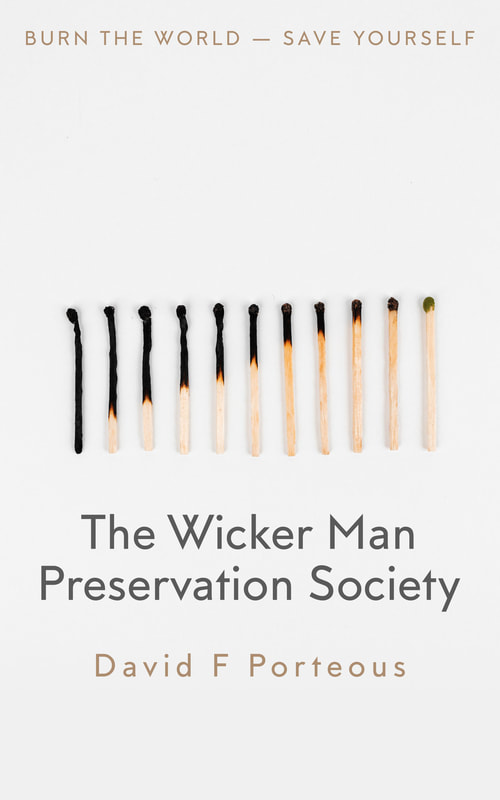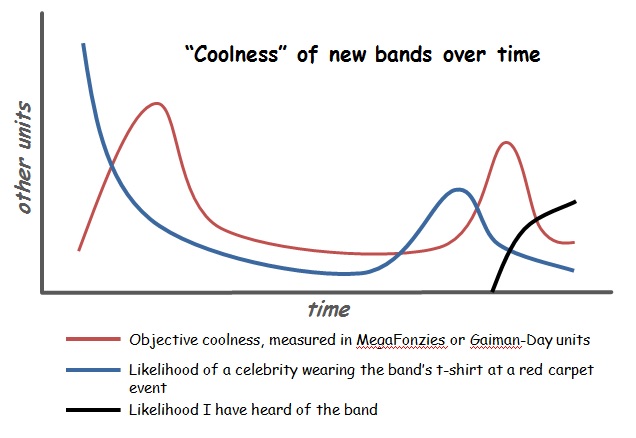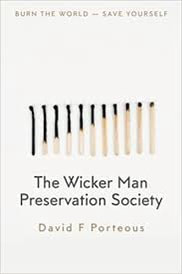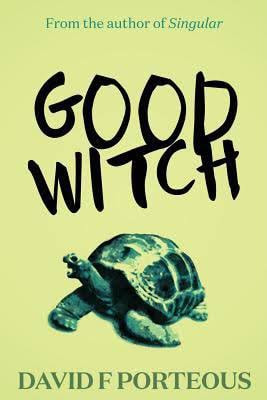dfpiii.com |
The website of David F Porteous |
|
I first played (Advanced) Dungeons & Dragons as a teenager, and one of the main differences between the D&D I play as an adult and what I played back then is description. “Inside the room are six orcs. Roll initiative.” This is pretty close to the adventures run, and participated in, by a teenage murder hobo.
I recently started running a low combat, high mystery campaign set in real world Victorian England in 1851. As the tea parlours and opium dens of smog-ridden London contain - so far - zero orcs, it’s made me reflect on how much has to be done through description. I’ve created some rules for myself as I plan and deliver each session, and I thought I’d share my rules in case they’re useful to anyone else. DFP’s rules for descriptions
Description must serve a purpose For me, there are four good purposes for description: to provide information; to establish tone and create character; to provide opportunities for interaction; and to deliberately deceive. Providing information is probably the easiest of these and needs to preempt the obvious player questions. Is there anything trying to kill me? Is there anything here I can have sex with? Is there any treasure I can steal? How big is this orc sex dungeon and what equipment do they have? Is it obvious that what’s going on is consensual? And so on. Game Master’s love to use description to set tone and develop character. Whether it’s the warm and welcoming halfling tavern at the end of the adventure, the warm and welcoming ancient black dragon they slew, or the warm and welcoming sphere of annihilation they looted from it’s hoard - we all know description matters, but not all descriptions are equal. Good descriptors of tone and character are about what your players can perceive about the world, not what your players feel about the world. You probably thought “warm and welcoming” was a pretty bad description for a sphere of annihilation, but fine for a halfling tavern. And when you thought that, you were wrong. It’s a bad description for all three of those examples - even the ancient black dragon. Let’s assume what we want our players to experience is a warm and welcoming tavern. Instead of saying warm, we could mention a large fire burning in the hearth. Easy. Instead of saying welcoming, we could have a tavern patron shout “Norm!” as our characters enter - providing one or all of them are called Norman, or something similar. Why is this better? Because now our players have a better shared concept of the world, and that improves their ability to interact with each other and with that world. You’ve probably heard this concept described as “show, don’t tell” in writing. While it’s most commonly quoted in relation to character dialogue, it’s also true of objects, places, appearances, etc.
0 Comments
Six years after Good Witch, I've written another book. It's called The Wicker Man Preservation Society and it's in all the places you would normally get books, in all the places around the world. I've never been an effective salesman for my work and I do not expect to get better any time soon, therefore I have to rely on people who have read it, telling other people who haven't read it to mend their ways.
Here's the page on Amazon.com, and here it is on Amazon.co.uk. That's all. Thanks. (I'll probably put the cover here). Hello. The following short story was produced for a thing, with a strict limit of 1,200 words. I thought I'd share it here.
Your Servant By David F Porteous Sigurd McAlpine left as confirmed bachelor, dashing colonel and heir to some small fortune. He fought Napoleon – successfully by all accounts – and returned from France, no more married and no less dashing, to find that his father had passed during the Battle of Waterloo itself. And everyone agreed this was rotten luck. The new Lord McAlpine occupied the suite of rooms at the family castle in Dumfries and had been installed at the estate barely a week when the gift arrived. Crated carefully and packed about with straw, it was a large Venetian mirror of antique construction; rectangular and bordered with gothic angels and swirls of brass cloud where some original gilding remained. The glass, though darker than contemporary mirrors, had a warmth and character that spoke of true craftsmanship. With the mirror came a note in a familiar, terse hand. McAlpine, a gift of France – to me, and now yours. Regards, Wellington. In truth, McAlpine had no great association with the Duke of Wellington, and while he had performed his orders to the Field Marshall’s satisfaction, they were not friends. So the gift, lavish in itself, was all the more valued for being unexpected. McAlpine wrote a brief note of thanks – Wellington would appreciate no other kind of thanks – and had the mirror hung in the drawing room, where he might remark on its provenance to anyone who visited. Dumfries did nothing to compete with London for company, and McAlpine was not surprised when no visitors came. Still he enjoyed the mirror, and would find himself staring into every day for no reason. It was a week after he received the Duke’s gift when the second mirror arrived. Smaller than the first, just as well packed, its frame was wooden, but carved in some dark wood not native to Britain. With this mirror came a letter. My Lord, I understand that you fought with my husband at Waterloo and will be aware that he died fighting for his King and Country. In his will he left you this remembrance of him. Kind regards-- The signature had been smudged, as if the woman who wrote it had been crying, and McAlpine could not guess as to the name. Half a dozen officers of his acquaintance or in his service had perished at the Château d'Hougoumont and the letter might reasonably have been from any of them. The mirror was hung in the drawing room also, though in a place of lesser importance than that afforded to the mirror sent by Wellington. McAlpine gave the coincidence no more thought until the following week – when a third mirror arrived. This one was plain, of no great age or value, and McAlpine sent it to the attic, returned to its packing, after reading the note. Sir. My son died at Waterloo. He was in your regiment. This mirror was his only possession of value. Your servant, John Michaelmas. McAlpine had vague recollection of a Michaels or a Michaelmas – a sergeant, or a corporal – but there was no return address, and he put the thought of replying from his mind as he put the letter into the fire. The sincerity with which the three mirrors had been offered to him put a joke beyond possibility, yet he could not escape the feeling that he was being mocked. Business called him to Edinburgh and McAlpine spent a month in the city meeting with merchants and lawyers, settling bills and receiving investments, putting the last of his father’s estate to rest. He returned to Dumfries to find the head of his household – an aged castellan who wore the livery of a London butler, in style forty years previous – almost in tears and obviously fearful of some ill-treatment from his master. In the Lord’s absence, some fifteen mirrors had arrived, the latest only an hour before McAlpine’s carriage. Their sizes varied, as did their quality, from handspan vanity mirrors to pieces almost as proud as Wellington’s. Each came with a note. Dear sir. My Lord. Colonel. You knew my father. My husband. My brother. My son. He was killed at Waterloo. He fell defending Hougoumont. He died. He died. He died. A bayonet. A bullet. A cannonball. In the fire. The fire. In fire. He died in the fire. Your servant. McAlpine burned all the letters. The mirrors he distributed as best he could, until he felt every room was crowded with reflections of himself. Perhaps not dashing as he had been, perhaps running to fat as his father had, and perhaps his eyes were marked from lack of sleep. When had the dreams begun? Was it the night after the battle? Or only some days later? He remembered the order which had come from Wellington. Hold position at any cost. An axeman broke the gate. He held. Cannons smashed the walls. He held. The French set fire to Hougoumont. Still he held. In the sound of rifles and screaming he heard the distant fife. Then he was no more dreaming, and he stood in the Château, and also in his bedchamber. The windows were blue-black and a half moon illuminated the slumbering fields and forests of Dumfries. But the mirrors blazed with light; through them he saw Waterloo, as much as could be seen through smoke – guns as far away as thunder, and fire so close he could feel the heat on his face. The marching music of the fife – high, shrill, like the song of a bird – was coming from the drawing room and he ran there, covering his mouth against the smoke. In the Wellington mirror he saw their approach. They were not the relief troops that had come to hold the line that day; in bloodied livery, their death wounds worn like medals, advanced the fallen. He recognised their faces, though they were slackened by the grave; grim and grey as hanging meat. A dead-eyed sergeant gripped the frame of the mirror as if it were a window ledge. He put one leg over, and stepped into the room. His throat – torn like sacking – flapped when he spoke, and his words were incomprehensible. But he stood straight at attention, as he would have in life, in the presence of his commander. They all stood at attention. McAlpine saw the colours carried by his dead regiment and knew his duty. With his nightshirt for a uniform, and with the sergeant’s assistance, he climbed through Wellington’s mirror and returned to the battle. * * * At the speed of law it was eventually determined that McAlpine had abandoned his life, or fallen to unknown ill-fortune, and an executor was appointed to determine the legitimacy of claims and pass the estate to the Lord’s legal heir – whoever that was found to be. The executor, pouring over the papers of the estate, found the note that had accompanied the first mirror, and the tear-stained letter that came with the second – both written in the familiar, terse hand that matched the signature and ledgers of the Lord McAlpine. Understanding some of what had transpired – these events being far from unusual after the war – he burned all remaining notes and, assisted by the butler, smashed every mirror to pieces. Hello and welcome to 2016. I thought I'd take the opportunity to recap on what I did in 2015. This is that opportunity.
I recorded my first novel - Singular - as an audiobook. The process was great fun and the final result is, in my opinion, though I believe I'm reflecting general orthodoxy here, the best audiobook ever. Listen to it! here in the UK and here in the US. My third book - Good Witch - was released just before Christmas. Some early reviewers say it's my best book yet. Read it! here in the UK and here in the US. Along with my friends David Candy and David Chisholm (who was the sound engineer for the Singular audiobook), I recorded a new podcast. Cheerful Despair is a series of half hour discussions about nothing. It's coming out at the moment and new episodes will air each Monday in January. Listen to it! here on iTunes and here for all other podcast thingamies. I've also been recording more gaming videos on YouTube in 2015 and I hope this will continue in 2016. There's certainly going to be a new and exciting series of Space Engineers (: Lost In Competents) and the continuation of the absurdly boring multiplayer for Galactic Civilizations 3 (: END YOUR TURN). To be sure you keep up to date with all this, subscribe! to my YouTube Channel. I'm well progressed on writing my fourth book - Harry Potter and the Something of Something (working title) - so you may hear more about that in 2016. Otherwise, Happy New Year. You'll see another blog from me in 3 to 18 months. DFP Another quick excerpt from the book I'm currently writing. This exchange takes place between Isobel Greenhill and her granddaughter Caprice Howard in the back garden of the house owned by Judith Howard (Isobel's daughter and Caprice's mother).
“Why isn’t my mum a witch?” Caprice asked her grandmother. Isobel Greenhill was sitting on a chair in the back garden with her feet propped up on another chair. She had her eyes closed and her face titled to an afternoon sun that was still high above the tall trees beyond the well-tended and substantially decorative vegetable patch. It looked almost as if Isobel were sunbathing, apart from her green coat, which she wore buttoned all the way up to her chin. The garden at the back of the house was enclosed by high hedges and the only signs of neighbouring buildings were a few roofs and frosted bathroom windows. The village was a place of strictly observed rules, boundaries and privacy. If there were other girls and other grandmothers in adjacent gardens they were as far removed from Caprice as the Martians. Isobel did not open her eyes when she replied. “Your mother is a witch.” “But she never does any spells,” Caprice said. “Ah. Is that what you think being a witch is?” Isobel asked. “Spells? Broomsticks too, I imagine? And cats that speak to you in Latin?” “And it isn’t?” “Oh, yes,” Isobel replied with a puff of derision that clearly indicated the truth was the opposite of that. “If you can be bothered teaching a cat how to speak Latin. And if you don’t mind carrying around a broomstick everywhere. Being a witch can be like that. But those are distractions. The first thing a witch should learn is that there is nothing a witch should learn.” “I don’t understand,” Caprice said. It had been dry for several days and she sat on the grass a little away from her grandmother. Bees scoured the lawn for the daisies that grew everywhere else, but which Judith Howard had the gardener regularly excise. The hum of the bees was like the sound of distant mowing and Caprice – who had never been stung and had no fear of it – was not disturbed by the infrequent fly-bys. “How did you learn to speak?” Isobel asked. “I don’t remember. Probably from my mum and dad.” “And how did you learn to hold a knife and fork?” “The same way.” “And if you had been born in China and your parents were Chinese, how would you be different?” “I would speak Chinese and use chopsticks.” “Most likely,” Isobel replied, her eyes still closed. A bee seemed about to land on the old woman’s nose, hovering in the air above her face for a frozen moment until she frowned and the insect sped off like a black and yellow firework. “So,” Isobel continued, “how would you learn to be a witch?” Caprice was sure this was a trick question, but she couldn’t think of any way to answer it than by saying, “I would watch other witches and do what they did.” “Then you would fail,” Isobel said, though there was no expression of surprise or disappointment in the way she said it. “There is magic that you can learn from books or from instruction, but witchcraft is not like that at all. I could teach you how to spin straw from gold and turn wine into water. I could show you how to fold up space to change a great hall into a cupboard. I could give you the secret of eternal age and ugliness. Under my instruction you might hold a bottle with a bolt of lightning and dance on a dragon’s wing. But having learned all these things you still would not be a witch. “Witchcraft is the magic we learn from ourselves, by understanding who we are, who we will become and what we want. As we become wiser, we understand ourselves more, and through understanding ourselves we understand everything. All the things you think of as magic are tricks. Useful, yes, but if you understand yourself you can do anything. Or you can do nothing. That is the power of witchcraft.” Caprice thought about this and replied, “But why doesn’t my mum do spells?” Isobel sighed. “A long time ago she fell in love with a boy, who fell in love with someone she wasn’t. Do you know the story of Narcissus?” Caprice shook her head, and was about to speak – since her grandmother could not see her – but Isobel spoke anyway. “Narcissus was a beautiful boy—” “Shouldn’t you say handsome?” Caprice interrupted. “Because he was a boy. Boys are handsome and girls are beautiful.” “Nonsense,” Isobel said with another snort. “Handsome is a word for horses and hounds. Only a mother should ever call a boy handsome, and only if the boy is her son, and her son is ugly. Narcissus was beautiful. One day he saw his reflection in a pond, fell in love with it, then committed suicide. What does that teach us?” “Don’t look into ponds?” Caprice replied. “I feel like there should be more to that story if it’s supposed to have a moral.” “I see. Well.” Isobel cleared her throat. “A long time ago, at the edge of a wood lived a hunter whose family were all passed away. He had a house and a bow and such things as young men of that age of the world were accustomed to; and he was neither poor nor rich, and what he hunted in the forest he ate, and the pelts he sold for coin to meet all his other needs. “The hunter was tall and lithe and his hair was black as a midnight hurricane. He took lovers when he wished, both men and women – in those days that was more common than not. But never for more than a night and though they loved him, he felt no emotion that survived the dawn of the new day.” “Gran—” “Shush. It so happened that while in the woods a young witch saw the hunter. She was strong and determined and she decided that she would take the hunter to her bed, and perhaps make him her husband.” “Gran!” “Oh that’s how witches have always done things. You’ll do the same in your time. Now stop interrupting. “The hunter did not see the witch as she was, he saw a plain girl of the forest, far less impressive to his eye than the people of the town whom he could seduce as he wished. He did not scorn her, but he did not want her either, and if the witch had as much sense as determination that would have been the end of it. “It was not. “The witch followed the hunter and watched him when he bent to a pool of water to drink. The hunter saw his reflection and realised that he was what he desired most in the world. And the witch, who was very powerful indeed, realised that in all the world the hunter was what she most desired. Using her great magic, the witch put aside all that she had learned about herself, all that she had ever been and could ever be, and she became the hunter’s reflection. She rose up from the pool and the hunter loved her as he loved himself.” “The hunter doesn’t kill himself in that story,” Caprice said. “No,” Isobel replied. “In that story it is the witch who kills herself; the moral is the same. Neither witch nor hunter had imagined how the years would pass, yet such passage is always predictable. Their beauty faded. Each year they looked the same and each year they liked it less, until their reflection served only as a reminder of those regrets which a lifetime piles up. They died on the same day. At the end, neither could recall who had been the beautiful boy and who had been only his reflection. “There aren’t a dozen witches in the world who could cast a spell like that, even if they were foolish enough to want to.” Caprice considered that for a long time. She hadn’t thought of her mum and dad ever being in love. They just were. They ate dinner. They went to church. On birthdays and at Christmas they gave each other small gifts. If that was love, it wasn’t as interesting or exciting as books and films made it seem. Caprice asked, “Is this why you and dad don’t get on?” “I don’t get on with most everyone, my dove,” Isobel said. “Don’t let that worry you.” “Will I be a powerful witch?” Isobel opened her eyes and looked at Caprice for the first time in half an hour. She smiled, and Caprice thought it was a sad smile. “Yes,” Isobel said, in her style of answering questions simply and directly, while giving as little information as possible. “Will I be a greater witch than my mum?” “We must hope so.” “Will I be a greater witch than you?” The question made Isobel’s Greenhill’s eyes bulge, and she made an attempt to smother a laugh with a throaty cough. “Who knows?” the old woman asked after recovering her composure and she shrugged dramatically. “Let’s begin, and then we’ll see.” Just sharing a small piece of work in progress on the third book - which has a title, but which I'm not going to tell you. This a conversation that takes place between Campbell and Stockton, relating the latter's experience with werewolves . . .
"I met a man once, his eyebrows were heavy and his hands thick covered with coarse black hair.” “Holiday romance?” “He told me a story that I believe, about how he had been bitten and lived and did not change when the moon waxed full. I asked him how and he told me—” “Drink lots of water,” Campbell interrupted. “Pretty much all health advice comes down to sleep, exercise, diet or drinking lots of water.” “He told me that the wolf is hungry because it needs to be fed. He told me that his brothers knew he had been bit and they knew he had to die. Remember in those days every credulous villager went around wreathed in garlic and amulets, and alternated the veneration and immolation of toothless crones who spoke to trees. According to the mad old woman they most recently listened to, the proper way to deal with a werewolf was to cut off all of its limbs with an axe, bury the four limbs in four graves aligned towards Jerusalem, then put the body, head and a pile of rocks into a barrel of wine and throw the barrel into the ocean.” “That’ll do it,” Campbell confirmed. “Understandably the brothers couldn’t bring themselves to do any of it. This man was their brother, they loved him, they had no idea which way Jerusalem was, and wine was very expensive. Instead they found a cave in the mountains near where they lived, they put their brother inside and they rolled a stone over the entrance. For six days they waited; three before and three after the full moon. “On the morning of seventh day they returned to bring out his body and give him a proper burial according to their traditions. He was their brother, they loved him, they couldn’t leave his bones to rot in some mountain cave, and – what was even more important – he’d taken all the family’s money into the cave with him so he knew they would have to come back for him. “Rolling a stone into place was, the brothers discovered, much easier than rolling it back out again. It took them hours to uncover the entrance and, as is so often the case, after so much work the final revealing happened quickly. Rather than find a beast, or the body of a man starved to death, their brother stood at the entrance to the cave—” “How big was this cave?” Campbell asked. “He may have crouched at the entrance of the cave. In any case he emerged; a little thinner perhaps, but alive and well. Now the brothers rejoiced. Because they loved their brother, and they had their money back, and they hadn’t told their elderly mother about the whole cave in the mountains bit before they did it and she was furious. “So they went home and all was well. Though nobody doubted that there were werewolves, people began to disbelieve that the beast that had bitten our protagonist was such a creature. Others said that the cave in the mountains was obviously magical and suggested that anyone with an illness should be confined inside for a week to see if they got better. This idea did not immediately appeal to any sick people in the village and was never tested. “Never?” Campbell asked. “No. A few days short of a month later the first brother – the one who had been bitten – should I have given them names?” “You’re the writer.” “Let’s say the older brother was called Krebotkin and the others brothers . . . well if I name them then I have to decide if there were two or three.” Campbell said, “I was imagining three.” “Tom, Dick and Harry,” Stockton said. “A few days short of a month later Krebotkin killed Tom and Dick. Harry and their mother had gone on a pilgrimage to a distant church, to pray on the bones of a saint who was known to cure feelings of homosexuality.” “Oh that Harry,” Campbell said ruefully. “He just couldn’t leave the miller’s son alone.” “The pair returned to find slaughter,” Stockton said. “And Krebotkin had fled into the woods, or mountains, or another terrain feature, and they never saw him again.” “So this Krebotkin in your story was a werewolf?” Campbell asked. “Yes,” Stockton said. “He was. Obviously when he finished telling me this story he tried to kill me and so I broke his neck, hacked off his limbs, buried the pieces in several graves orientated towards Jerusalem and drowned the rest of him in wine. Because really, if you didn’t, after all that, you’d have to be some kind of schmuck.” From December 2014 to May 2015, I worked with sound engineer David Chisholm on recording the audiobook for Singular. During what turned out to be our third-last session - which, for the purposes of narrative we were pretending was our last session - my friend and occasional co-conspirator David Candy dropped by to take some obviously staged photographs "behind the scenes". Only people called David were involved in this project. These are real people, not other personalities I have. I think. Anyway - photographs! DFP asks whether, even to the untrained eye, it will be obvious that much of the equipment in this photograph is being used incorrectlyDFP pretends to listen to audio using only one headphone, because he's seen other people do that in like films and shitDFP pretends to have made a risqué joke while David Chisholm, who hasn't dressed like a batman villain but is instead wearing normal clothes, looks on in bemusementin easily the most awkward moment of either man's life, DFP and David Chisholm fake a high five for the fake ending of the recording sessions. At the actual end of the recording sessions, some weeks later, there was no actual high five. Look at the awkwardness - that's almost certainly a future leader of a political party right there.Late spring in the northern hemisphere is a time of endings. University students are graduating, high school students are completing their final exams, and there is a sense that a great and abiding illusion of permanence is being swept aside. Reality intrudes. The minute hand ticks. And so on.
A few years ago I wrote a high school graduation speech. I think mine is at least as good as those delivered recently by some of my favourite authors - Ian McEwan discussing the necessity of freedom of speech, Neil Gaiman advocating creativity and the making of things, George R R Martin explaining why he enjoys killing the people you love and that you can't stop him. I think this is also an excellent time of year to reflect on ourselves and how things are going. New Year is entirely the most grim and dark point of the annual cycle for those of us on the north bit of planet earth. Any assessment of one's self conducted on the cusp of the dying light of December's fireworks and the bleak house of January, is surely going to conclude that you're fat and a disappointment and that you're career isn't what it could be. In May . . . all of those things are still true - but at least it's sunnier. This year my "Spring Summary" highlighted that I'm not doing enough to engage with people. That there's about a 65% chance of me dying alone, probably of heart disease. And that I need to get a light, breathable summer jacket that doesn't look inappropriate in formal meetings. I've been looking for that jacket for a long time. I DON'T WANT TO HAVE A BLOG!
Hopefully the warmth of that opening has encouraged you to read more. I don't like blogging. Blogging feels a lot like I'm an old man sending letters to the editor of a print media artifact created from wood pulp and spit. It seems old hat. Even older than that, perhaps - it seems pre-hat. But here I am, blogging. And there you are, reading. I presume. I'm going to keep this blog updated more regularly and more frequently. If you're following me on Facebook and Twitter then you'll have seen a number of updates about cover art and the forthcomingness of an audiobook. These things will be the subject of future blogs. What I wanted to introduce to you today is the concept of regular progress, behind the scenes work on what I'm doing right now. I'm going to call these posts IWHSYDHT(F) - which stands for I Write Harder So You Don't Have To (Facepalm) - and in them I'll introduce you to terrible, inhumane acts of crassness which I commit in first drafts and which I then correct in subsequent drafts. That's a good idea, right? There's no way this could ever come back and bite me in the future - like suddenly in the future, like before the end of this post? Nah, that's never going to happen. The first change is in Singular itself. With the revision of the cover I took the opportunity to dip back into the book and make a small change due to an issue we encountered when recording the audiobook. It was only when listening back to a section featuring the creature (It) that I realised I'd put a really lazy and repetitive sentence in and somehow this had got by my normal editing process. The original sentence was: "The world grew from fist-sized sphere to fill the whole of its vision in three exhilarated breaths - and grew larger still until it felt the jarring strike of something hard against its whole body as it broke the threshold that separated one reality from another." The reason it struck me was because there are three "hole" sounds. "Whole of its vision", "whole body" and "threshold". Using the same word twice in one sentence is criminal; thrice is . . . more criminal. Mugging an old lady, criminal. Punching a goat, criminal. Low class, unwashed, criminal. The revision was: "The world grew from fist-sized sphere to fill its vision in three exhilarated breaths – and grew larger still until it felt the jarring strike of something hard against its body as it broke the threshold that separated one reality from another." Now, those revisions having gone to press, as it were, I see that second "grew" laughing at me. And I realise it isn't the word "grew" laughing at me - it's god. Hopefully future blog updates will make me seem less of an idiot. |









